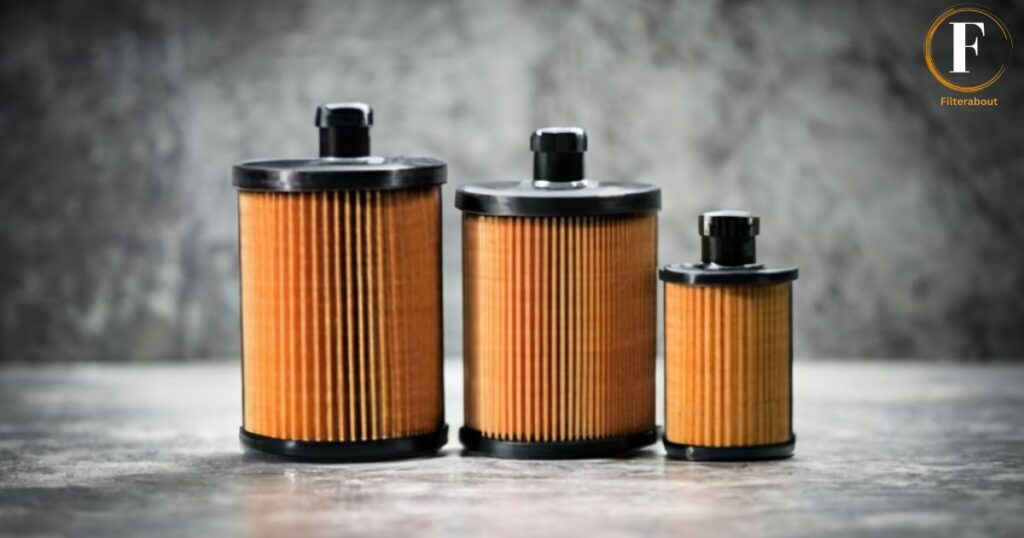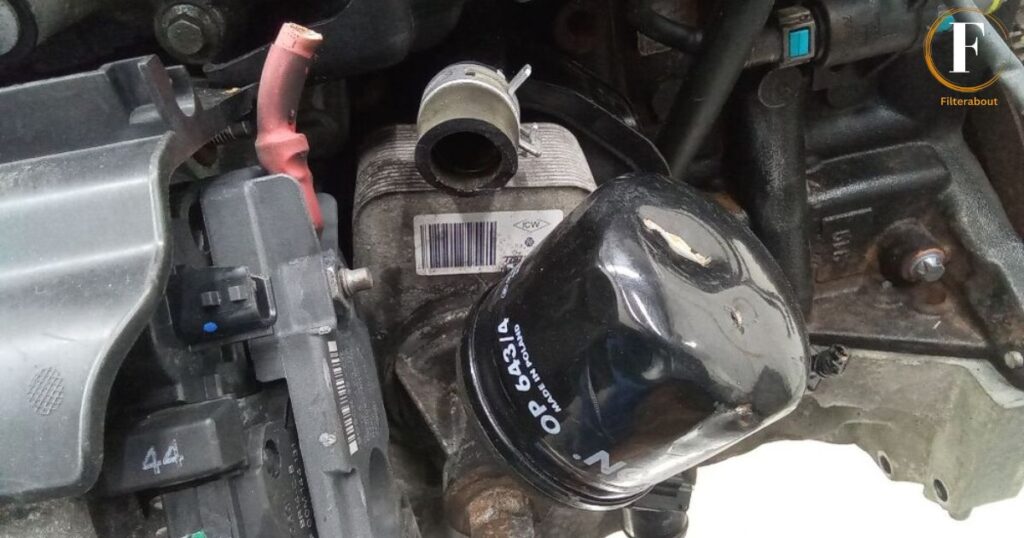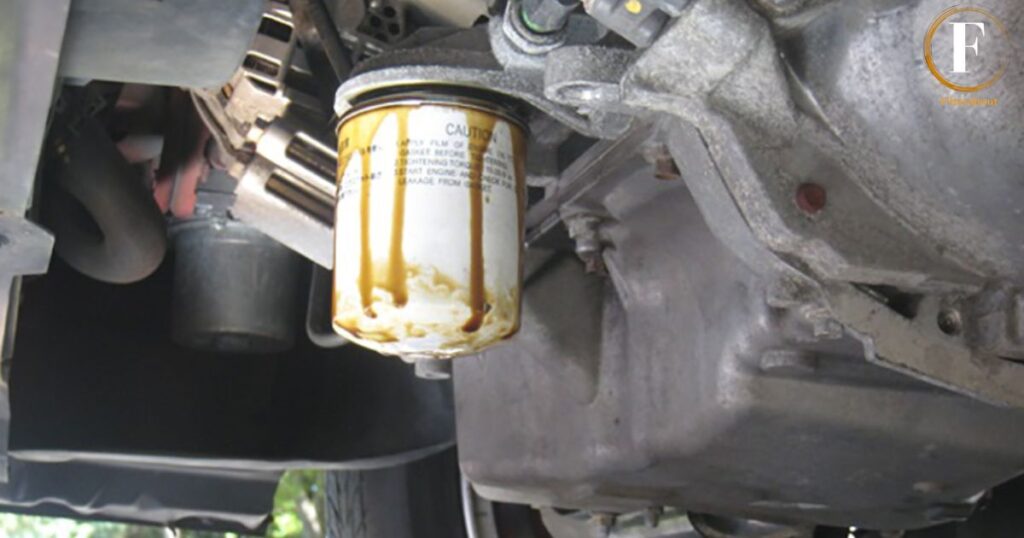Right Size Oil Filter is a component used in vehicles to clean and filter engine oil. It is specifically designed to fit the engine’s specifications, ensuring optimal performance and protection for the engine by trapping contaminants and maintaining proper oil flow.
Choosing the correct oil filter size is crucial for your car’s health. Using the right size ensures proper filtration, keeping your engine clean. A mismatched filter may lead to inefficient oil flow and potential damage. Don’t underestimate the importance of selecting the right size it’s a small choice with big consequences for your vehicle’s performance.
Using the correct size oil filter for your car is crucial. A too-small filter won’t trap contaminants effectively risking engine damage. On the other hand, an oversized filter may not fit properly, leading to leaks and potential engine issues.
Understanding Oil Filters
Understanding oil filters is essential for maintaining the health and longevity of a vehicle’s engine. These filters play a crucial role in keeping the engine oil clean by trapping contaminants such as dirt metal particles and sludge. The oil filter housing where the filter is securely located is a critical component.
As the oil circulates through the engine the filter including its housing captures these impurities preventing them from circulating and causing damage to vital engine components.
Regularly changing the oil filter including monitoring for an Oil Filter Housing Leak during oil changes is a simple yet effective way to ensure the engine operates smoothly and efficiently.
Choosing the oil filter ensures is paramount for optimal engine performance. The correct filter size is determined by the vehicle’s make, model, and engine specifications. Installing the right size oil filter ensures proper filtration and oil flow maintaining the engine’s health and efficiency.
Neglecting to use of the appropriate filter size may lead to inadequate filtration reducing the oil’s ability to lubricate and protect the engine adequately. Therefore when conducting routine maintenance it is crucial to select and install the right size oil filter to promote the longevity and reliability of the vehicle’s engine.
How Oil Filters Work
Oil filters play a crucial role in keeping a vehicle’s engine healthy. As engine oil circulates, the filter traps contaminants like dirt and debris, preventing them from reaching vital engine parts. Over time, regular replacement of oil filters ensures efficient engine performance and prolongs the life of the motor.
Importance of Oil Filters in Engine Health
Oil filters play a crucial role in maintaining the health of a vehicle’s engine. They help remove contaminants and impurities from the engine oil preventing damage to vital engine components. Regularly changing oil filters ensures clean oil circulation, enhances engine performance, and prolongs the overall lifespan of the vehicle.
Importance of right size oil filter

| Step | Importance of Right Size Oil Filter |
| 1 | Efficient Filtration: The right size oil filter ensures optimal filtration, preventing contaminants from damaging the engine. |
| 2 | Oil Flow Optimization: Properly sized filters maintain consistent oil flow, promoting efficient lubrication throughout the engine. |
| 3 | Engine Longevity: Choosing the correct filter size contributes to the longevity of the engine by protecting vital components. |
| 4 | Improved Fuel Economy: Adequate filtration reduces engine drag, enhancing fuel efficiency and overall vehicle performance. |
| 5 | Prevention of Oil Bypass: Correctly sized filters minimize the risk of oil bypass, ensuring that all oil passes through the filter media. |
| 6 | Reduced Maintenance Costs: Using the right filter size reduces the likelihood of engine damage, lowering long-term maintenance expenses. |
| 7 | Compatibility with Engine Specifications: Matching the filter size to the manufacturer’s recommendations ensures compatibility with the engine’s specifications. |
| 8 | Environmental Impact: Properly sized oil filters contribute to eco-friendliness by reducing oil consumption and minimizing environmental contamination. |
Ensuring Optimal Engine Performance
Maintaining optimal engine performance is crucial for smooth and efficient operation. Regular maintenance and timely checks help prevent issues, ensuring your engine runs at its best and extends its lifespan.
Safeguarding Engine Longevity and Reliability
Ensuring engine longevity and reliability involves implementing regular maintenance practices and adhering to recommended service intervals. By prioritizing care and attention you safeguard the engine’s durability, promoting consistent and reliable performance over time.
Does engine size matter for an oil filter?

The engine size does matter when it comes to selecting the right size oil filter. The primary function of an oil filter is to remove contaminants from the engine oil, ensuring smooth operation and preventing damage to engine components. A larger engine generates more contaminants so a filter with a higher capacity is often recommended.
In contrast using an undersized filter for a larger engine may result in reduced filtration efficiency and could potentially lead to engine wear and damage over time. Therefore it is crucial to consider the specifications outlined in the vehicle’s manual or consult with an automotive professional to determine the right size oil filter that matches the engine’s requirements.
Choosing the Right Size Oil Filter is essential for maintaining optimal engine health. It ensures that the filter can effectively capture and remove contaminants promoting clean oil circulation throughout the engine.
By adhering to the manufacturer’s recommendations and selecting the appropriate filter size for a specific engine motorists can contribute to the longevity and performance of their vehicles. Regularly replacing the oil filter in conjunction with routine oil changes is a fundamental aspect of preventive maintenance that helps safeguard the engine and ensures its smooth operation over time.
How Engine Size Influences Oil Filter Performance
The engine size plays a crucial role in determining the effectiveness of an oil filter. A larger engine typically produces more contaminants, requiring a robust filtration system. Choosing the Right Size Oil Filter ensures optimal performance by effectively trapping particles and maintaining engine health for smooth operation.
Engine Size and Oil Filter Selection
Selecting the right oil filter is essential and engine size is a key factor in making the correct choice. Engines differ in their capacity and produce varying amounts of contaminants.
It’s crucial to match the oil filter size to the engine specifications for optimal performance and protection. Choose the Right Size Oil Filter to ensure efficient filtration and extend the lifespan of your engine.
Impact of Using the Wrong Size Oil Filter

- Research and Identify Correct Filter Size: Before purchasing an oil filter, consult the vehicle’s manual or manufacturer specifications to determine the correct filter size required for the specific engine.
- Visit a Reputable Auto Parts Retailer: Purchase the oil filter from a reputable auto parts retailer, ensuring they stock the correct size for your vehicle make and model.
- Inspect the Filter Before Installation: Before installing the filter, inspect it to ensure it matches the specifications outlined in the vehicle’s manual. Check for any signs of damage or defects.
- Prep the Area: Ensure a clean working environment around the oil filter housing. Wipe away any dirt or debris that may contaminate the engine during the installation process.
- Remove the Old Filter Properly: Carefully remove the old oil filter, ensuring all remnants of the previous gasket are also removed. Failing to do so could lead to a faulty seal with the new filter.
- Apply a Thin Layer of Oil: Before installing the new filter, apply a thin layer of oil to the rubber gasket. This helps create a proper seal and prevents the gasket from sticking during future removal.
- Hand-Tighten the Filter: Install the new filter by hand-tightening it onto the filter housing. Avoid over-tightening, as this could lead to damage and make removal difficult during the next oil change.
- Double-Check for Leaks: After starting the engine and letting it run for a few minutes, check for any oil leaks around the filter. If leaks are present, immediately turn off the engine and address the issue to prevent potential damage.
By following these steps and using the correct oil filter size, you can ensure proper engine lubrication, enhance performance, and prevent long-term damage to your vehicle.
Frequently Asked Questions
Why is the oil filter important in a car?
The oil filter in a car is crucial for removing contaminants and debris from the engine oil ensuring optimal engine performance.
Does the right oil filter matter?
Yes, using the right oil filter is important. It ensures proper filtration, compatibility with the engine and overall engine health.
What are the benefits of a better oil filter?
A better oil filter provides improved engine protection by effectively removing contaminants ensuring cleaner oil-enhanced lubrication and prolonged engine life.
Do oil filters make a big difference?
Yes oil filters make a significant difference in maintaining engine health by effectively filtering contaminants, promoting cleaner oil, and ensuring optimal performance.
Conclusion
The importance of using the right size oil filter for your car cannot be overstated. A properly sized oil filter is a crucial component in maintaining the health and longevity of your vehicle’s engine. Choosing the correct filter ensures optimal filtration efficiency, allowing it to trap and remove contaminants effectively. The right size prevents oil flow restriction, ensuring that the engine receives a continuous supply of clean oil, vital for lubrication and heat dissipation. Neglecting this aspect can lead to reduced engine performance, increased wear and tear, and even catastrophic engine failure.
Furthermore, using an incorrectly sized oil filter may void the vehicle’s warranty and compromise its overall reliability. Regular maintenance, including the use of the right oil filter, not only safeguards the engine but also contributes to fuel efficiency and emission control. Investing in the proper oil filter size is a small yet essential step in preserving the health of your car’s engine and securing its smooth and trouble-free operation for the long term.

Alexander Quinn is the author behind Filterabout.com. Known for expertise in diverse topics, Quinn’s content on the website reflects a versatile knowledge base catering to various interests.



![Jynxzi Age, Net Worth, Career[2024]](https://filterabout.com/wp-content/uploads/2024/05/Who-Is-Shanin-Blake-Age-Wiki-Parents-Dating-Net-Worth-300x148.jpg)
![Jynxzi Age, Net Worth, Career[2024]](https://filterabout.com/wp-content/uploads/2024/05/Jynxzi-Age-Net-Worth-Career2024-300x148.jpg)


![Kutty Surumi Net Worth, Bio, Age[2024]](https://filterabout.com/wp-content/uploads/2024/05/Kutty-Surumi-Net-Worth-Bio-Age2024-300x148.jpg)



![Jynxzi Age, Net Worth, Career[2024]](https://filterabout.com/wp-content/uploads/2024/05/Who-Is-Shanin-Blake-Age-Wiki-Parents-Dating-Net-Worth-150x150.jpg)